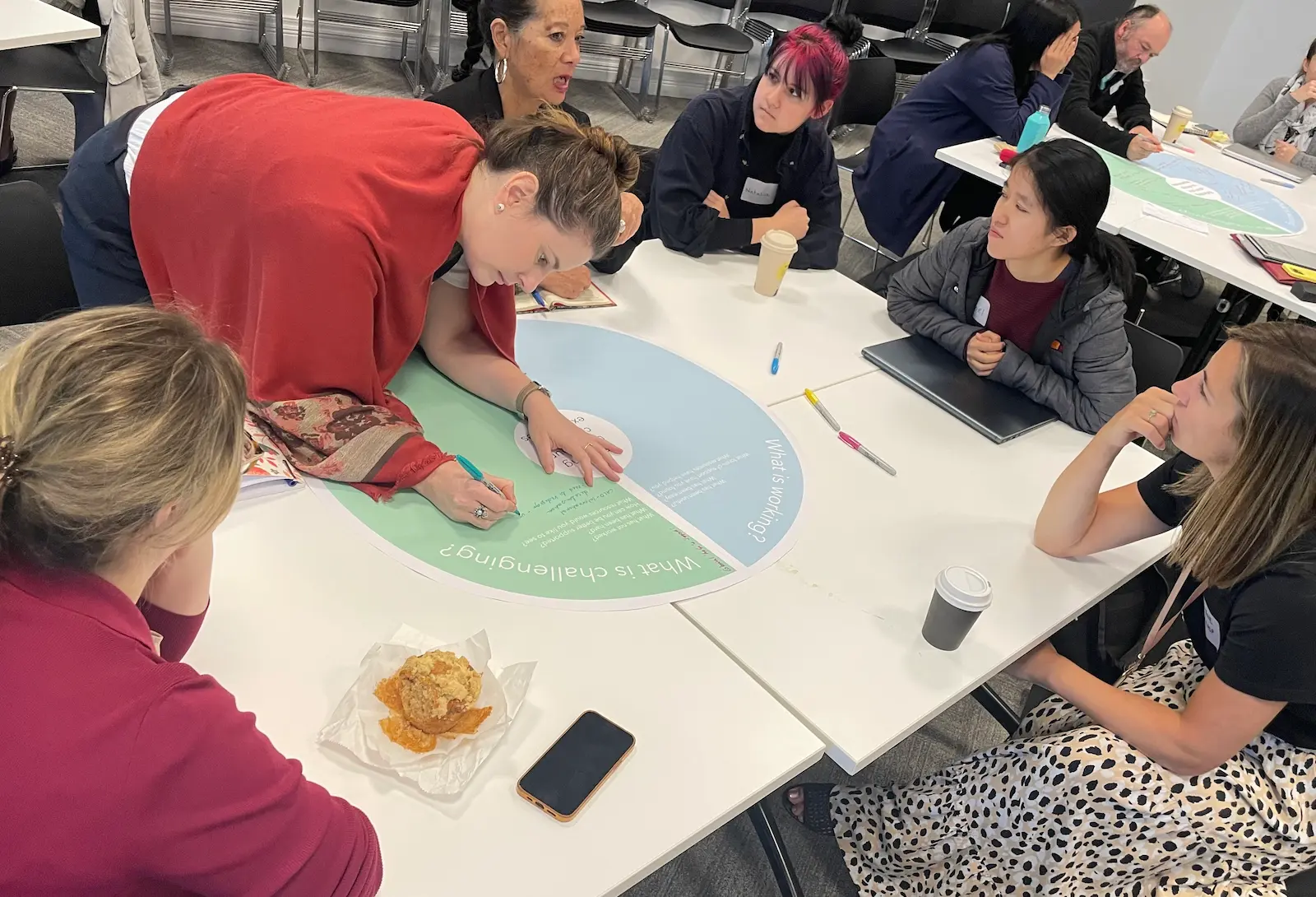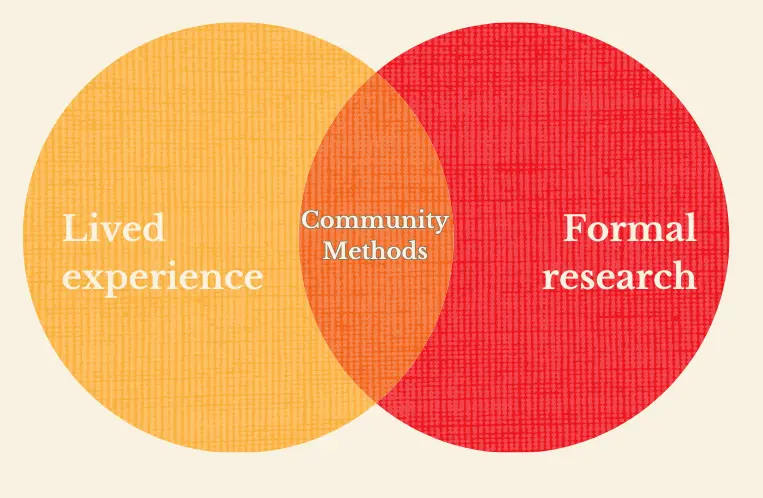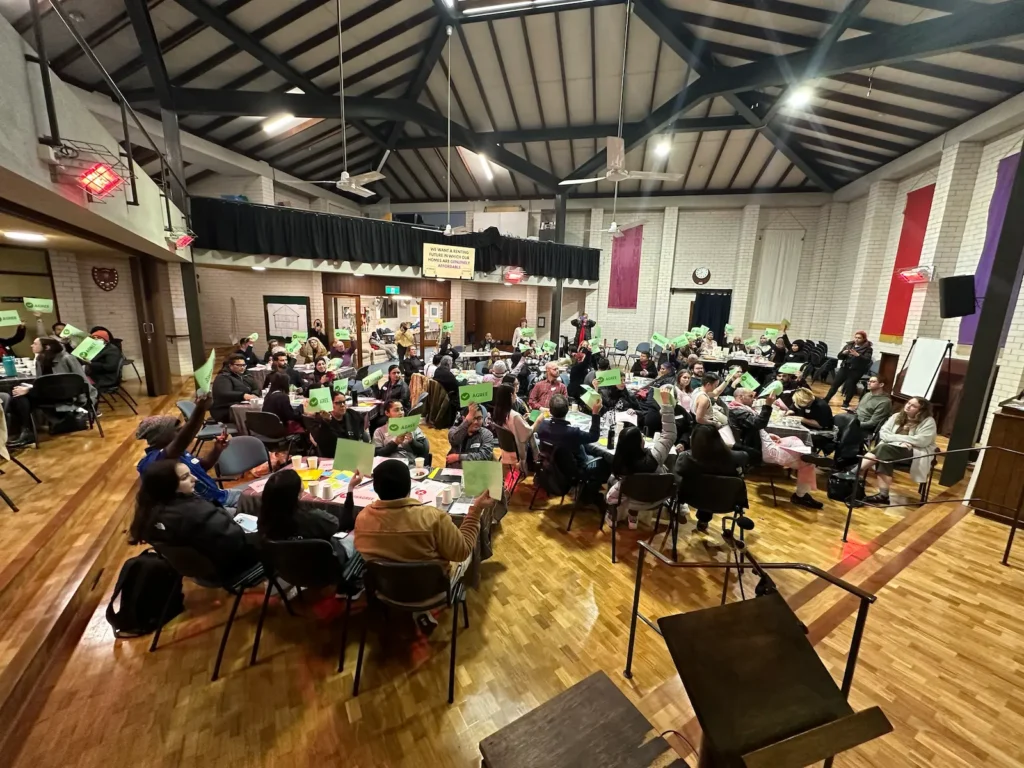Community Methods
What are Community Methods?
“The best research is produced when researchers and communities work together”
— Nature Editors (2018): World’s leading multidisciplinary science journal
Community Methods Pages:
Community methods are strategies for creating new research or public policy by actively involving community participants. They are methods that combine knowledge drawn from lived experience with researchers or policymakers subject-matter knowledge. The phase community methods is an umbrella term to describe approaches like co-design, participatory action research, deliberative research methods, co-production, citizen science, community-led research and the relational method.

Community methods are used to conduct research or policy making with communities, involving affected communities in the research process from the very outset – working together to identify research questions, design the methods for data collection, collecting data, analysing data, authorising results and achieving impact. This is different from traditional ethnography, public policy or qualitative research methods that may involve communities through interviews, surveys, focus groups or even workshops – but where the topic being investigated and the questions being asked are in the control of researchers or policy makers alone.
Community methods create knowledge by combining the strengths of two different ways of knowing a subject – through formal research and through lived experience. At its core, community methods recognise that formal research is powerful, but incomplete when it comes to understanding how things actually work in practice. At the same time, while community methods revere the knowledge that can be drawn from experience, they recognise that transformational research or policy contextualises and places individual experience alongside others experience and more generalised research and knowledge. In contrast to the confidence of positivist approaches to research that asserts that knowledge can be objective and certain, community methods invite a more contingent and uncertain form of knowing that calls for a paradoxical “both/and” way of building knowledge across lived experience and formal research. Instead of seeing any form of knowledge as absolute – community methods argue that held together lived experience and formal research can co-create the most powerful policy and research outcomes.

Community Methods are an approach to developing research or policy making where people are central, including policy or research as it relates to:
- Human needs – anything from health care (such a policy relating to anything from mental health to people living with pain) to housing (which inevitably involves making changes to where people live).
- Particular experiences – anything from the relatively benign experience of being a user of a service or consumer of a product, to experiencing a policy like climate transition in a specific place or geography, to stronger and more distinct experiences, such as living with domestic violence, .
- Particular identities or big differences, such as research or policy relating to particular experiences based on different races, genders, sexualities, disabilities or forms of neurodivergence
Ultimately, most research benefits from the involvement of affected communities – from renters leading policy reform on housing, to regional communities affected by fossil fuel and renewable infrastructure leading policies on climate transition, from students, parents and teachers leading change to education policy. As the editors of the world’s leading multidisciplinary science journal Nature put it, partnering with community to produce research is more likely to be useful to society.

Yet these community methods are too often marginal to public policy practice and academic research, facing institutional obstacles, methodological uncertainty and inexperience, and a lack of support and capacity for communities to fully participate.
A combination of decades of community organising experience leading change with communities in civil society, extensive subject matter research expertise on collaborative practice and social change strategy, and a track-record of leading multi-year projects deploying community research methods, Amanda Tattersall has become one of Australia’s go-to leaders on community methods. She writes, runs training and provides support for research and public policy projects using community methods in urban and regional communities around Australia and across the world.